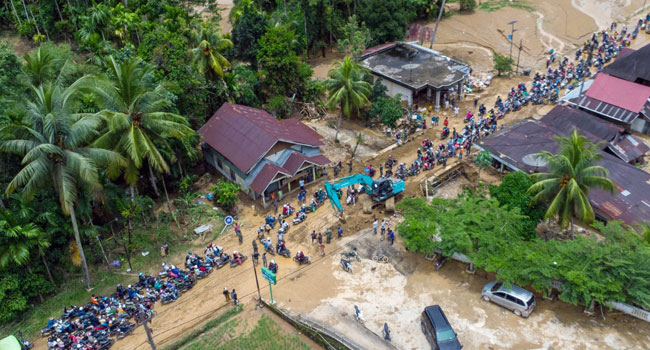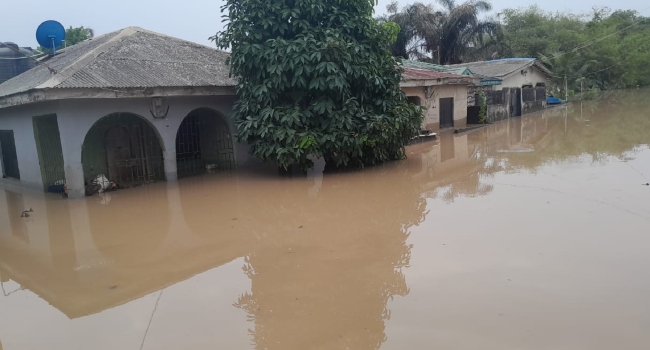
Ludovic MARIN / AFP
Severe flooding since August has affected at least 623,000 people in South Sudan, forcing many to flee their homes with the situation further exacerbated by ongoing violence, the UN’s emergency-response agency said Thursday.
Torrential rains have caused rivers to overflow, deluging homes and farms in eight of South Sudan’s ten states, the United Nations Office for the Coordination of Humanitarian Affairs (OCHA) said in a briefing note.
Emergency workers are using canoes and boats to reach cut-off populations, with over two-thirds of the affected areas now facing the risk of hunger as food prices shoot up, recording a 15-percent jump since August, the agency said.
“Schools, homes, health facilities and water sources were inundated, impacting people’s access to basic services.”
Some families have been able to flee to the capital Juba, while others have set up makeshift camps along highways, grabbing what few possessions they could from the ruins of their flimsy thatched huts.
In some parts of the country, violence between rival communities has forced tens of thousands of people to leave their homes while also complicating emergency workers’ efforts to help flood-battered communities.
UN teams have struggled to get aid to Warrap, a northwestern state plagued by ethnic violence, which is now battling a measles outbreak.
Meanwhile, around 80,000 people have been uprooted from their homes in Western Equatoria state in the country’s southwest as a result of the fighting which erupted in June, OCHA said, with some fleeing to the Democratic Republic of Congo.
The agency last month warned of limited supplies and a funding shortfall, saying that it had only received 54 percent of the $1.7 billion (1.4 billion euros) required to pay for programmes in the country.
Funding shortages have also forced the UN World Food Programme to suspend food aid to over 100,000 displaced people in South Sudan, the agency said last month, warning of further reductions unless it received more cash.
Four out of five of South Sudan’s 11 million people live in “absolute poverty”, according to the World Bank in 2018, while more than 60 percent of its population suffers from severe hunger from the combined effects of conflict, drought and floods.
Since achieving independence from Sudan in 2011, the young nation has been in the throes of a chronic economic and political crisis, and is struggling to recover from the aftermath of a five-year civil war that left nearly 400,000 people dead.
Although a 2018 ceasefire and power-sharing deal between President Salva Kiir and his deputy Riek Machar still largely holds, it is being sorely tested, with little progress made in fulfilling the terms of the peace process.
AFP




